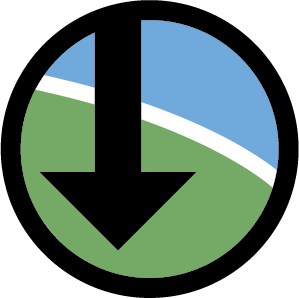Update: The presentations from the training workshop were recorded and are available through an open-access website, the UW FHL Youtube Channel. Workshop participants are exploring how novel findings can be published in the peer-reviewed scientific literature and shared with the general public, resource managers, and policymakers. Additional public outreach will be developed with Washington Sea Grant, Western Washington University’s Salish Sea Institute, and the Seattle Aquarium’s Conservation Program.
_____________
Marine heatwaves (MHWs) are periods of anomalously high ocean temperatures relative to the climatological mean. They can be caused by natural meteorological or oceanographic processes; however, climate change has increased their duration, frequency, and intensity. Now considered one of the most prominent examples of human-caused extreme weather events, MHWs have been shown to impact marine ecosystems and their living resources as well as the coastal communities whose economies rely upon those resources.
MHWs can be caused by a variety of climate forcings; they can persist from weeks to years and occur over extensive spatial scales. The ecological impacts of MHWs can be severe, as observed during previous coral bleaching events, seastar wasting disease outbreaks, harmful algal blooms, benthic mass mortality events, and cetacean unusual mortality events. Although MHWs have doubled in frequency and intensity since the early 1980s, they have become a more general topic of interest only recently. Satellite remote-sensing and ocean-observing systems have improved scientists’ ability to detect and monitor MHWs; however, scientific understanding of the meteorological and oceanographic processes underlying them is far less mature.
The CO2 Foundation is supporting Dr. Charles Greene and colleagues to conduct a two-week training workshop on MHWs at the University of Washington’s Friday Harbor Laboratories (UW FHL) in late August 2024. The goal of this workshop is to improve predictive understanding of MHWs and their impacts while sharing this understanding with the next generation of practitioners. An international team of leading scientists in this field will serve as instructors for a diverse group of graduate students, postdocs, and early-career professionals. Participants will analyze meteorological and oceanographic time series data to evaluate how anthropogenic climate change alters the atmospheric and oceanic processes underlying different kinds of MHWs; access, process, and analyze data from in situ ocean observing and satellite remote-sensing systems; analyze ecological time series data to evaluate how the duration, frequency, and intensity of different kinds of MHWs impact marine ecosystems; and learn how to make their findings relevant to resource managers and policymakers.
The presentations at the training workshop will be recorded and made available through an open-access website; novel findings will be published in the peer-reviewed scientific literature and shared with the general public, resource managers, and policymakers. Additional public outreach will be developed with Washington Sea Grant, Western Washington University’s Salish Sea Institute, and the Seattle Aquarium’s Conservation Program.
This training workshop will be the first sponsored activity of the FHL-led Salish Sea Coastal Climate Resilience Consortium. The Consortium’s vision is to create an idea incubator that will build organizational understanding, capacity, and skills within the Salish Sea region. As the Consortium’s hub, FHL will host small conferences, strategic planning workshops, and professional training workshops. The Foundation shares the hope and expectation that with FHL’s leadership, the Consortium will help produce the next generation of coastal climate resilience leaders, working effectively around the Salish Sea and beyond.
